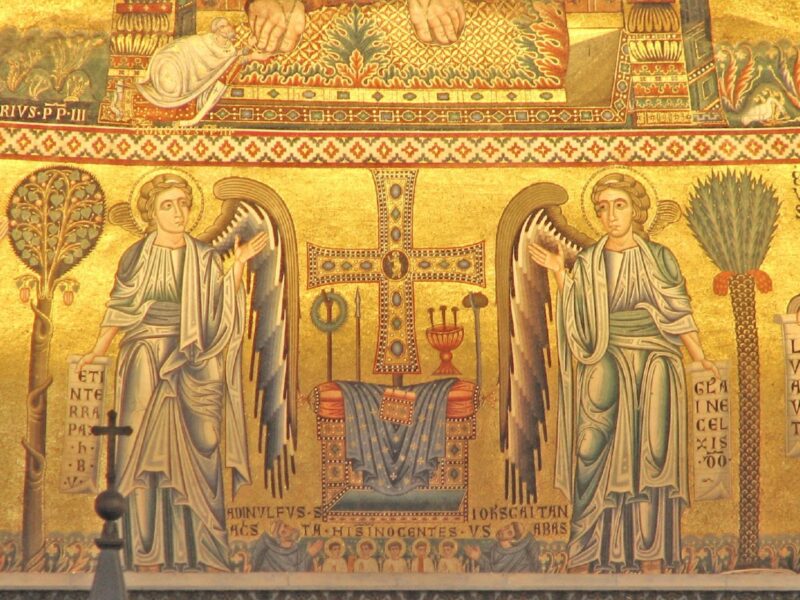
Only One Man
Trinity Sunday. Fr Richard Finn explains why belief in the Trinity is necessary for salvatiion.
Can we be saved by what we believe? Can we be damned for what we don’t believe? At first hearing, the words of Jesus in today’s Gospel may sound harsh, or perhaps worse, repellent, offering a deeply troubling image of a God who consigns to hell all those whose ideas don’t match the prescribed orthodoxy. Where, we might say, is the love in that?
Yet, there are occasions when we can only be saved by what we believe: disbelieve the sign which tells you of the minefield you are about to enter, and your life will be short. Moreover, Jesus doesn’t tell Nicodemus so much what to believe, as in whom to believe, in whom someone should place his or her trust; and life at times certainly depends on the place we trust in others. The cancer patient entrusts himself or herself to the surgeon. The passenger entrusts life and limb to the driver or pilot. To cross safely the treacherous sands of Morecombe Bay, we must trust an experienced guide. Whether there is just one person in whom we must put that trust or many among whom we may choose will depend on the plight in which we find ourselves.
What, then, is humanity’s essential plight? We are beset by many crises, not least the environmental degradation of our common home, and the many, varied, sufferings attendant on warfare and poverty across the globe. However, underlying these specific crises is an age-old inability of men and women to live together sociably, peaceably, justly, and kindly. Our crises are symptomatic of a deep-seated failure of the human heart which we call original sin. We inherit a refusal on humanity’s part of God’s full gifts, a warped desire to go it alone, the upshot of which is a propensity to sin. We lack what it takes wholeheartedly to love God and neighbour, indeed we lack even what it takes to love ourselves properly. Alienated from right relationships to God, self, and neighbour, and left to our own devices, or vices, we are simply incapable of sharing God’s love, His eternal life.
It is this plight from which only one man can save us, in whom we are invited to place our trust, the Lord Jesus Christ. For He stands revealed as the Divine Word made flesh, whose ministry of preaching and healing, whose self-sacrificing Passion and death, articulated in human terms His utter love for the Father and for us, indeed formed a uniquely powerful prayer for our salvation. That prayer as the human expression of the infinite and eternal love of the Divine Word for the Father finds its necessary answer in the Resurrection and the outpouring of the Holy Spirit upon us first at Pentecost and now sacramentally in baptism and confirmation. As St Paul told the early Christians at Rome, ‘God’s love has been poured into our hearts through the Holy Spirit which has been given to us’ (Romans 5:5). As St Augustine repeatedly explained, this is God’s love for God. As members of the Body of Christ, we share in the Son’s love for the Father, and know ourselves as loved by the Father, united with Father and Son in the Spirit.
It is this love that gives us an appetite for Christ’s teaching, a delight in creatively and intelligently living out His commandments. Only because God has blessed us in this way, with new life in Christ, can St Paul urge his fellow Christians at Corinth to ‘agree with one another’ and ‘live in peace’, because they can have been given a share in the love shared between the persons of the Holy Trinity.
The doctrine of the Trinity which we celebrate this Sunday is then at the heart of the Christian religion, not because it offers us an abstruse dogma, but because it articulates the relationship of shared love into which we are drawn for our salvation. For this let’s give heartfelt thanks and praise.
Readings: Exodus 34:4-6,8-9 | 2 Corinthians 13:11-13 | John 3:16-18



Johh Michael
Brilliant Fr Richard.
Hoping you’re r well.
I’v seen a good review of your recent book, and look forward to reading it.
Thankyou,
John Michael ofm.
Frances Flatman
Really helpful Many thanks